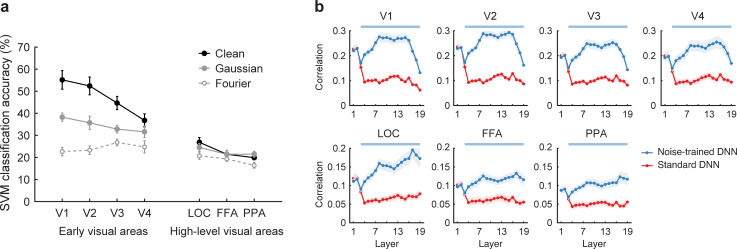Fig 7. Noise-trained VGG-19 provides a better model of human cortical responses to objects in noise.
(a) Classification accuracy for fMRI responses in individual visual areas for clean objects (black filled circles), objects in pixelated Gaussian noise (gray filled circles) and Fourier phase-scrambled noise (gray open circles). Error bars indicate ± 1 standard error of the mean (n = 8). Chance-level performance is 12.5%. (b) Correlational similarity of object representations obtained from human visual areas and individual layers of DNNs when comparing standard versus noise-trained networks (red versus blue, respectively). Color-coded horizontal lines at the top of each plot indicate a statistically significant advantage (p < 0.01 uncorrected) for a given DNN at predicting human neural representations of the object images. Data are available at https://osf.io/bxr2v/. DNN, deep neural network; FFA, fusiform face area; fMRI, functional magnetic resonance imaging; LOC, lateral occipital cortex; PPA, parahippocampal place area; SVM, support vector machine.

